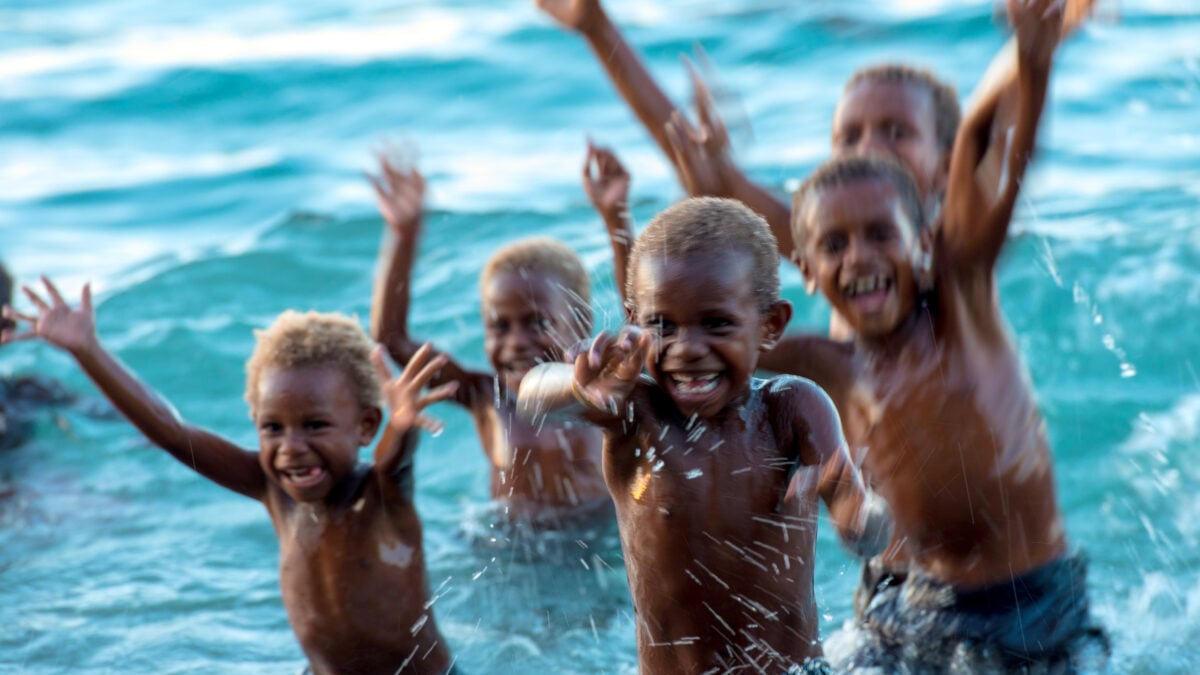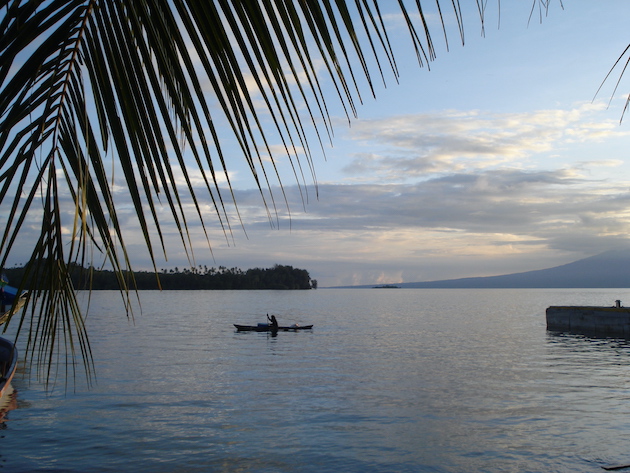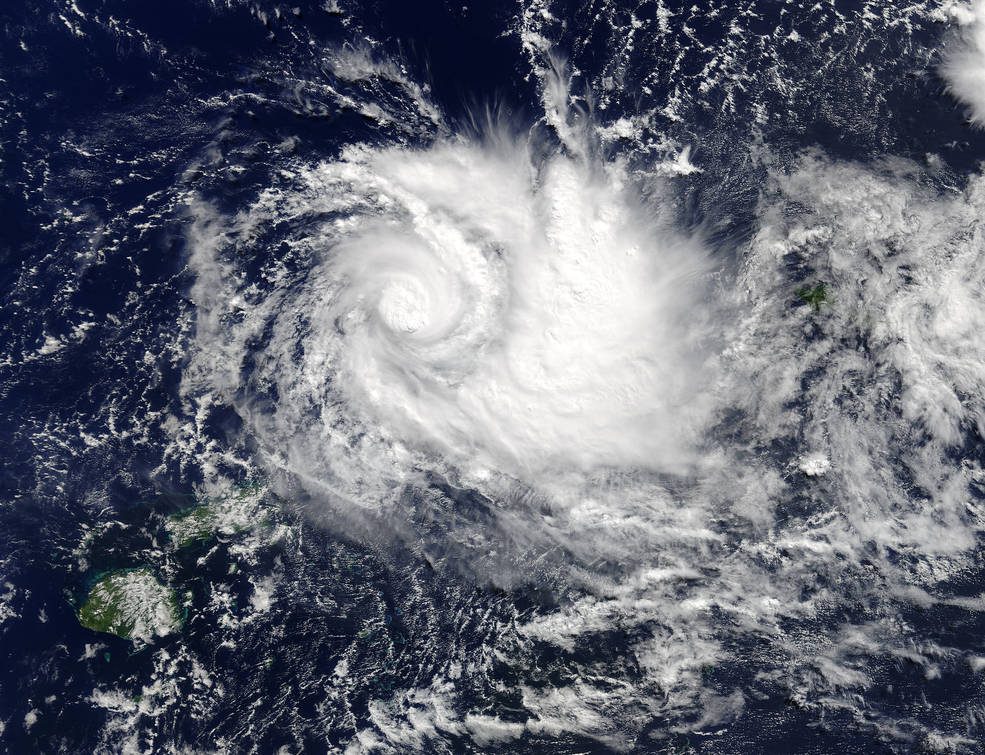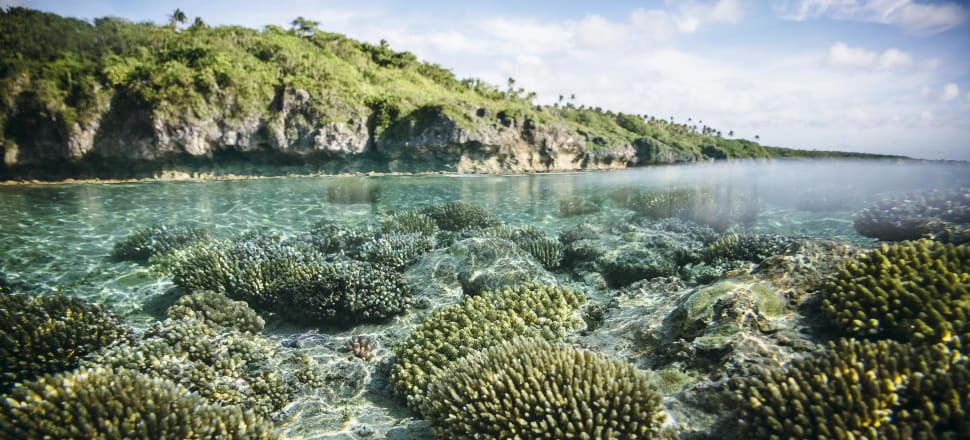SG Puna urged big emitters and wealthy nations to now shift gear towards their commitments under the Paris Agreement, reminding them of the vulnerable groups that are impacted by climate change and related disasters
The commentary below takes its cue from remarks led by Forum Secretary General Henry Puna, at the Ministerial Forum for Cooperation in the Indo Pacific in Paris, France, on 22 February, 2022. SG Puna spoke to a ministerial roundtable on Health, Climate, Biodiversity and Oceans
Taking our Pacific challenges- and solutions to the world has always required coherent, clear messaging on the issues close to our collective heart. Whether we are talking about household families, villages, or national populations, if we are not speaking to the realities of everyday people, all the policy and high-level language is unable to connect.
In recent weeks, in meetings across three continents, I have continued to reflect on the affirmations that our Pacific approaches bring to global challenges. I cannot help but note that our success stories sing most because they are deeply rooted in human connection. As I watch the unfolding news updates in global headlines, I am reminded of the absolute necessity of those well-worn truths: leaving no one behind, putting people first, bringing the most vulnerable to the centre.
The Pacific Islands Forum comprises 18 nations, acting collectively and in solidarity as one Blue Pacific Continent, for a peaceful, inclusive, and prosperous region.
Together we represent 40 million people and are stewards of over 40 million square kilometres of the Pacific Ocean.
We are the custodians of the world’s largest, most peaceful, and abundant ocean, its many islands, and its rich diversity of cultures.
This is a role we take seriously, and it is with this in mind that we are developing the 2050 Strategy for the Blue Pacific Continent, asserting the voices and leadership of our Pacific people, in shaping the destiny of our region.
Our 2050 Strategy for the Blue Pacific Continent came from the discussions and decisions of our Pacific Islands Forum Leaders. It is intentional. It is future-facing. And it is all about us.
While international partners may have made their geostrategic shift to the “Indo Pacific”, our Forum Leaders are determined to articulate and drive the strategic interests and our development priorities of our own region – the Blue Pacific. In this regard, Forum Leaders are set to endorse a 2050 Strategy for the Blue Pacific Continent this year. The conversations at community and personal levels are still ongoing. The engagement and feedback continue. The shaping of the strategy will articulate our collective priorities for the benefit of all Pacific people. These include climate change and oceans, economic development, technology and connectivity, and people-centred development. The Strategy is founded on the firm recognition of the strategic, cultural, and economic value that our Blue Pacific region holds. We have a shared commitment to protect and leverage this value.
We are interested in, and open to inclusive, and enduring partnerships. Partnerships that recognise and support the collective strength and wellbeing of our Blue Pacific region. Partnerships that do not conflict with, but rather–are aligned and in flow with the vision and priorities of our 2050 Strategy. Of course, the 2050 strategy must take some extraordinary timing challenges into account. Currently, our Blue Pacific is faced with a three-pronged crisis, juggling the devastating effects of climate change and disasters; the impact of COVID-19 on top of the Non-Communicable Disease (NCDs) crisis, and the fragile economic health of the region. Our 2050 Strategy seeks to simultaneously address these challenges. We need partnerships and investment to achieve the necessary change. COVID-19 investments must be climate-smart and in line with a low emissions development pathway. We need to build quality, affordable, and accessible health and education systems and resilient infrastructure. We need to capitalise emerging opportunities including digital trade and e-commerce. We are addressing our high debt distress situation, including strengthening public financial and debt management systems, but need support from partners and flexibility in development financing modalities. And, as per my opening thoughts, we need to take a people-centred approach to ensure equality, equity, and inclusivity in national and regional development.
But while COVID-19 is our immediate crisis, climate change remains the single greatest threat to the livelihood, security and wellbeing of the Pacific and its people for the long term. The response of the people of Tonga to the devastating aftermath of the recent Hunga Tonga-Hunga Ha’apai underwater volcanic eruption and tsunami demonstrates the resilience of our Pacific people in the face of disasters. As the headlines across the global news networks constantly show us, no one can withstand the destruction that lies ahead if our world does not drastically reduce carbon emissions. Currently, at 1.2⁰C of global warming, our oceans are warming, our seas are rising, and the intensity and frequency of extreme weather events are inflicting damage and destruction on our peoples, ecosystems, economies, and countries. The shared prosperity and security of our Blue Pacific can only safely exist if the international community limits global warming to 1.5⁰C.
Urgent action is needed. Ambitious action is needed now. All countries, especially the big emitters and wealthy nations, must now shift gear towards the full implementation of their commitments under the Paris Agreement. We need it for the sake of humanity and our young generations. COP 26 in Glasgow last year was a step in the right direction., but it fell short of delivering the much-needed action to address the climate code red. All countries must take action to achieve, net-zero emissions by 2050. Developed countries must deliver on their finance commitment of 100 billion US dollars with dedicated finance for loss and damage. Anyone with a game changing mindset is invited to join and support more Pacific led solutions. These include our Pacific Resilience Facility and debt-for-climate swaps. And for our Blue Pacific, we must effectively integrate the oceans into the UNFCCC climate-nexus process. All countries, especially the big emitters and wealthy nations, must now shift gear towards the full implementation of their commitments under the Paris Agreement. We need it for the sake of humanity and the generations to come.
It is vital that we preserve our natural and marine environment and build inter-generational resilience to future crises. I want to also remind us that women, youth, children, and persons with disabilities are disproportionately impacted by climate change and related disasters. Climate action and disaster preparedness and response need to be inclusive so that no one is left behind.
When our founding Forum Leaders first met in Wellington in August 1971, climate was not the biggest threat on their minds. But a common threat then, continues to shadow the contemporary Blue Pacific – that of nuclear safety and nuclear waste. While the world benefits from the peaceful use of nuclear energy in the generation of low carbon electricity and life-changing applications in medicine, science and industry, our Pacific Island nations are facing the dire possibility of being at the receiving end of a large-scale nuclear accident whilst we still deal with nuclear legacy issues related to the testing of nuclear weapons and storage of nuclear waste in our region.
Every state with nuclear power plants needs to focus on protecting its population and environment by constantly striving for higher standards of nuclear safety and employing lessons learned from global operating experience and public concerns relating to radiation risks and nuclear waste. States must take all appropriate measures within their territory, jurisdiction or control to prevent significant transboundary harm to the territory of another state, as required under international law. As we strive to ensure the freedom of our Blue Pacific from nuclear waste and contamination threats, we remain committed to keeping our region nuclear-free as espoused under our South Pacific Nuclear Free Zone Treaty. Generations of Pacific citizens have not had to deal with the realities and lessons of our colonial and post-colonial past. It is important that the lessons which have strengthened our collective resolve and regional solidarity, continue to inform our understanding of why these issues are so important for us. I acknowledge the work of the Marshall Islands National Nuclear Commission in this regard. Their story is one we must all own, and support.
Our Nuclear legacy, given the extent of underwater and oceans-impacting testing across all corners of our region, is also an Oceanic legacy. Again, it is no coincidence that all roads, all stories, all our development trajectories, bring us home to the Ocean. Our Pacific peoples, cultures, economies, and societies. It is the source of our identity, livelihoods and for many, our destruction if we do not turn the tide.
Our past, present, and future development is based on the rights and entitlements guaranteed under the UN Convention on the Law of the Sea.
Recognising this, Pacific Island Forum Leaders in 2021, issued the Declaration on Preserving Maritime Zones in the Face of Climate Change-related Sea-Level Rise. The Declaration is a ground-breaking instrument that safeguards our legal rights and entitlements against sea-level rise. The Declaration is firmly grounded on UNCLOS, including its underlying principles of stability, security, certainty, and predictability. We offer our Declaration as a moderate, targeted solution to this urgent global crisis.
Also, critical this year is for us to land a robust and ambitious international, legally binding instrument for the conservation and sustainable use of marine biodiversity of areas beyond national jurisdictions.
When the international community comes together next month for the final session of the biodiversity beyond national jurisdictions (BBNJ) intergovernmental conference, we must deliver a new framework based on the best available scientific information and traditional knowledge. It must consider the precautionary approach; recognise the special circumstances of Small Island Development States; and recognise the special interests and roles of coastal states. It must also consider cumulative impacts of activities, as well as of climate change. This future instrument must contribute to improve international ocean governance, without undermining existing relevant instruments and frameworks and relevant global, regional, and sectoral bodies. The ocean must be preserved for the benefit of present and future generations, for it is the beating heart of our one Blue Pacific Continent– and indeed –our one Blue Planet.
This story was originally published at Pacific Islands Forum Secretariat on 25 February 2022, reposted via PACNEWS.




